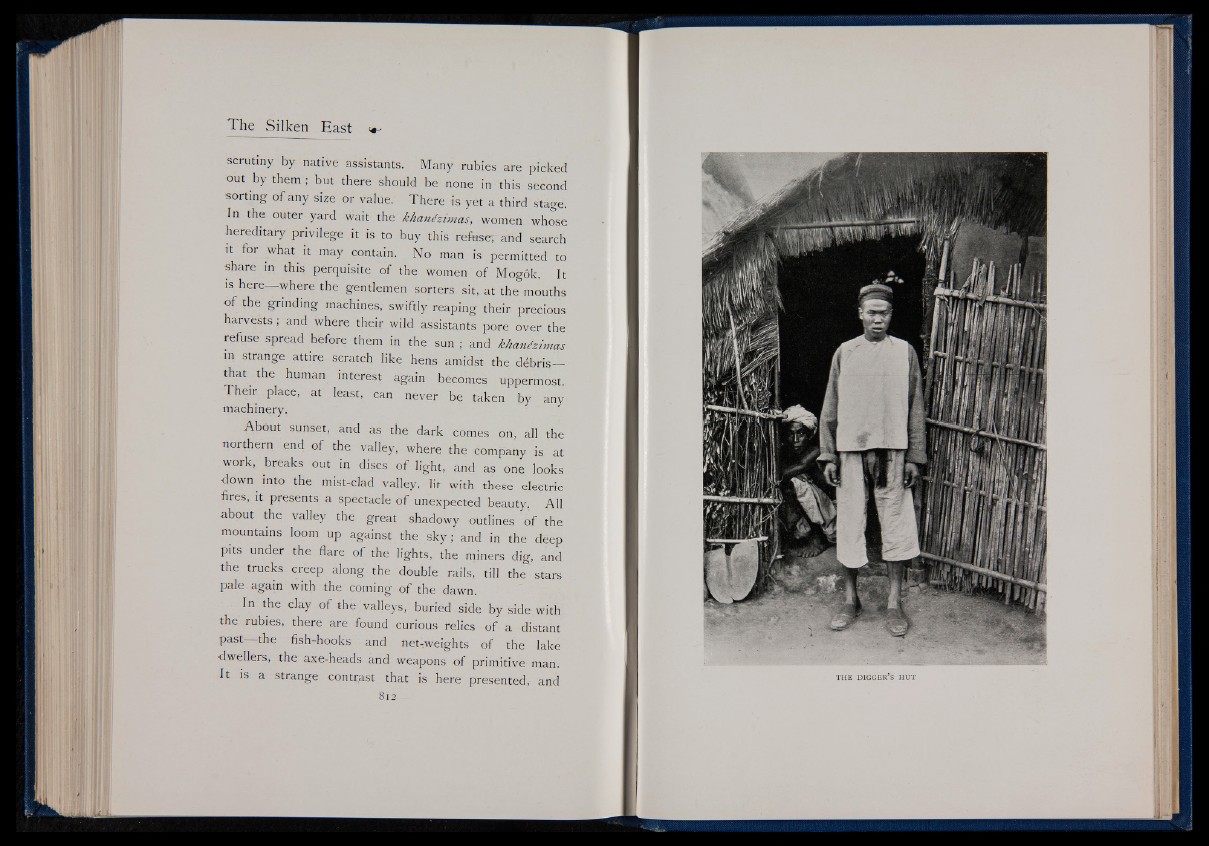
scrutiny by native assistants. Many rubies are picked
out by them ; but there should be none in this second
sorting of any size or value. There is yet a third stage.
In the outer yard wait the khanézimas, women whose
hereditary privilege it is to buy this refuser and search
it for what^ it may contain. No man is permitted to
share in this perquisite of the women of Mogôk. It
is here— where the gentlemen sorters sit, at the mouths
o f the grinding machines, swiftly reaping their precious
harvests ; and where their wild assistants pore over the
refuse spread before them in the sun ; and khanézimas
in strange attire scratch like hens amidst the débris—
that the human interest again becomes uppermost.
Their, place, at least, can never be taken by any
machinery.
About sunset, and as the dark comes on, all the
northern end of the valley, where the company is at
work, breaks out in discs of light, and as one looks
down into the mist-clad valley, lit with these electric
hres, it presents a spectacle of unexpected beauty. All
about the valley the great shadowy outlines of the
mountains loom up against the sky ; and in the deep
pits under the flare of the lights, the miners dig, and
the trucks creep along the double rails, till the stars
pale again with the coming of the dawn.
In the clay of the valleys, buried side by side with
the rubies, there are found curious relics of a distant
p a s t—the fish-hooks and net-.weights of the lake
dwellers, the axe-heads and weapons of primitive man.
It is a strange contrast that is here presented, and
■